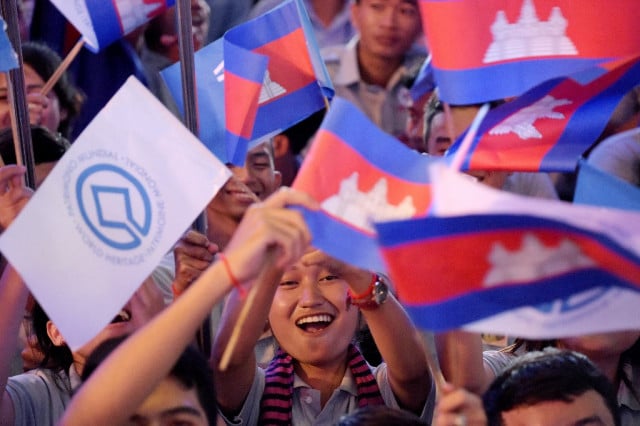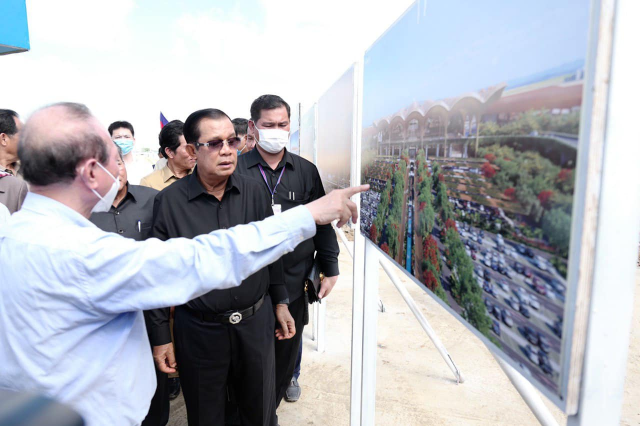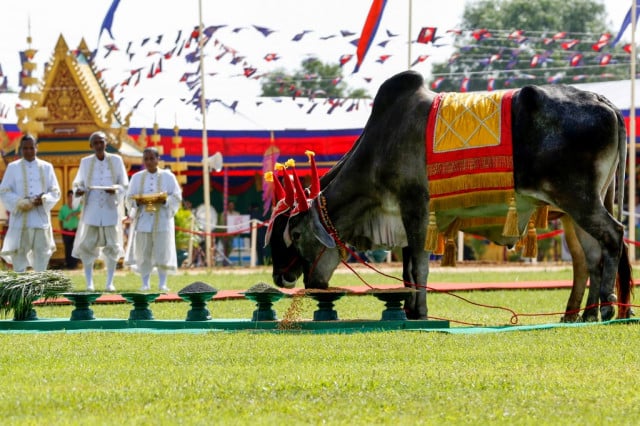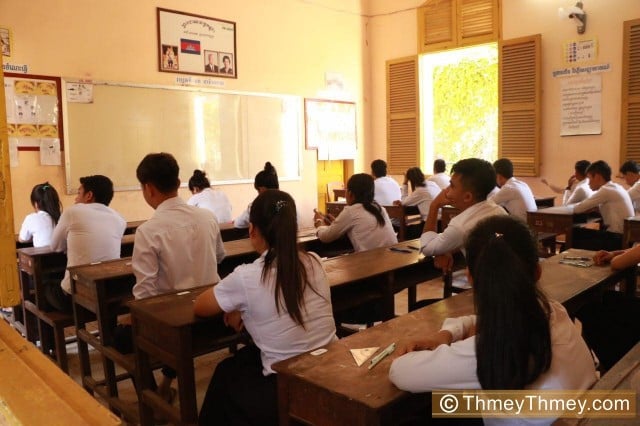The Role of Public Intellectuals in Cambodian Society

- Kimkong Heng
- March 24, 2021 7:41 AM
In any society, intellectuals play a critical role in shaping the public discourse and promoting moral values, social and political freedom, nationalism and heroism, selflessness, and social unity.
The role of intellectuals in driving social change, helping to preserve language and culture, and protecting national interests has been the subject of numerous accounts. In Cambodia, it is not uncommon to hear people “speak of how intellectuals in previous generations sacrificed their time, energy, or even freedom and life to contribute to the betterment of Cambodia” (Heng, 2020a, p. 1). Oftentimes, high moral expectations are placed upon intellectuals who need to behave in certain ways to foster positive developments in society or to selflessly contribute to the public good. This article discusses the role of public intellectuals and the need to promote intellectual discourses in Cambodian society to move the country forward in a positive and sustainable direction.
Defining Intellectuals
The term intellectual, in its neutral sense, refers to “a person whose life or work centers around the study or use of ideas, such as in teaching or writing” (Cambridge Dictionary, n.d.). The concept of ‘intellectual’ was born in France at the end of the 19th century, and it was used to refer to French writers who intervened in politics when there was injustice in the society (Canivell, 2007). According to Müller-Doohm (2005), “educated people are described as intellectuals insofar as they dare to be publicly critical of the status quo. The potential intellectual becomes an [sic] real one through the practice of engaging in public critique” (p. 270). This observation is in line with Noam Chomsky’s definition of intellectuals. Chomsky (1967) precisely notes that the responsibility of intellectuals is “to speak the truth and to expose lies” (p. 2). Similarly, Trung (2013) defines intellectuals as “those who have diverse wisdom and foresight, who apply their intellect and forward-looking visions for the purpose of awakening society. They help to divert the masses from what is unwise and wrong toward what is righteous and the good” (para. 2).
Types of Intellectuals
Gramsci (1971, cited in Amutabi, 2007) divided intellectuals into two types: traditional and organic. Traditional intellectuals “are people such as professors, philosophers, and journalists. They are conventionally people who make up the intelligentsia, who have historically been isolated from society and typically represent the dominant block of thought leaders in society” (Parks, 2020, p. 181). Organic intellectuals, in contrast, “are people who emerge as the spokespeople of a particular social class. They are able to articulate, potentially, a more diverse range of social voices, resistant ideas, and spur resistant blocks of society” (Parks, 2020, p. 181). Amutabi (2007) argues that organic intellectuals tend to be more dynamic and active in the public sphere than traditional intellectuals.
Mazrui (1978, cited in Amutabi, 2007) categorized intellectuals into four types: “academic intellectuals, literary intellectuals, political intellectuals and general intellectuals” (p. 201). Academic intellectuals focus on intellectual pursuits of teaching, learning and research. Teachers, lecturers, professors and researchers belong to this group. Literary intellectuals “are engaged in a significant way in writing either as a full-time profession or as a serious pastime” (Amutabi, 2007, pp. 201-202). Possible members of this group are poets, novelists and eminent journalists.
The political intellectual, according to Aronowitz (2012), is “a thinker who persists in writing, speaking, and teaching unauthorized ideas. This, almost always, is a political act because they are challenging the hegemony of those in power at the discursive and institutional levels” (p. 188). Aronowitz adds:
The political intellectual, an endangered species throughout modern history, assumed the role of tribune: his mission was to expose the distortions, half-truths, and outright lies that were the steady diet offered by official propaganda. Moreover, the political intellectual is one who offers ruthless criticism of the way we live. (p. 190)
As to general intellectuals, they are the people who do not belong to any of all these three categories of intellectuals (Amutabi, 2007). Mazrui’s categorization of intellectuals, as Amutabi (2007) argues, is problematic because some intellectuals can belong to more than one category of intellectuals, that is they can be academics and writers or politicians at the same time. Amutabi (2007), albeit using similar terms, proposes another four types of intellectuals. These include (a) organic or activist intellectuals, (b) bourgeois or authoritarian intellectuals, (c) academic or philosophical intellectuals, and (d) generic or general intellectuals.
According to Amutabi (2007), organic or activist intellectuals “are in many ways populist in their pursuits. They pursue political and people-centered objectives, which by and large get them into direct confrontation with the state. They are always at the center of action and directly involved” (p. 202). The bourgeois/authoritarian intellectuals, on the other hand, are “propaganda specialists”. They support “the ideals and projects of the system of production favored by the status quo. They are never ashamed of their actions (or pretend not to be) so long as they are compensated for their services to the system” (p. 204).
Academic or philosophical intellectuals are mainly based at educational institutions. They focus on knowledge production and are generally not in agreement with the bourgeois or authoritarian intellectuals. However, although they are not activists, “they make their ideas known through recognizable dissemination. They might occasionally write in the media and even appear on television or radio” (Amutabi, 2007, p. 206). Similar to Mazrui’s categorization, generic or general intellectuals are those who do not easily fit in one of the other three categories.
Public Intellectuals
Different researchers thus far have introduced different typologies of intellectuals, and as Canivell (2007) observes, there is “a wealth of apparent functions associated with the overall role intellectuals play in society” (p. 161). In his article on public intellectuals, for example, Lowi (2010) mentions in passing different types of intellectuals, including public intellectual, private intellectual, university intellectual, alienated intellectual, and government intellectual. A public intellectual is defined as “an intellectual who expresses views (especially on popular topics) intended to be accessible to a general audience” (Oxford English Dictionary, n.d.). It can also be defined as “people who think out loud in the public square about issues of key concern to the society in which they live” (Strauss, 2005, para. 1).
Lightman (n.d.) defines intellectuals as people who are trained in a particular discipline and mainly work in a college or university. When these people decide “to write and speak to a larger audience than their professional colleagues”, they become public intellectuals (para. 11). He categorizes public intellectuals into three levels as follows:
Level I: Speaking and writing for the public exclusively about your discipline. This kind of discourse is extremely important, and it involves good, clear, simplified explanations of the national debt, how cancer genes work, or whatever your subject is.
Level II: Speaking and writing about your discipline and how it relates to the social, cultural, and political world around it. A scientist in this Level II category might include a lot of biographical materials, glimpses into the society and anthropology of the culture of science.
Level III: By invitation only. In this level, the intellectual has become elevated to a symbol, a person that stands for something far larger than the discipline from which he or she originated. A Level III intellectual is asked to write and speak about a large range of public issues, not necessarily directly connected to their original field of expertise at all. (adapted from Lightman, n.d., para. 12-14)
Lightman adds that an intellectual can move “slowly and even unconsciously upward through these various levels” (para. 17). However, the higher the level, the greater the responsibility. At Level III, public intellectuals often speak or write about things beyond their area of expertise. As such, Lightman suggests that public intellectuals should be careful and aware of the limitations of their knowledge as well as the consequences of their speech, writing and action.
Meanwhile, Canivell (2007) argues that “intellectuals, all over the world, seem to be suffering a crisis of identity” (p. 160). Many refuse to be identified as intellectuals while others do not consider themselves as such. This issue is more prevalent in less democratic countries, in which freedom of expression and academic freedom are under constant threat. Likewise, Aronowitz (2012, p. 187) observes that “throughout modern history, intellectuals have struggled for autonomy, combating the efforts of the state and religious institutions to transform them into technicians of the prevailing order—or, more egregiously, to shut them up.” Moreover, Aronowitz states that “as most intellectuals have become full-time paid employees of institutions of economic, political, and cultural power, the ‘independent’ intellectual is a rare breed (p. 187).
The Role of Public Intellectuals
Aronowitz’s statement is of relevance to the context of Cambodia, wherein intellectuals are expected by the public to contribute to the common good in society. However, due to their lack of agency and engagement in speaking up for the disadvantaged and vulnerable as well as their limited contribution to addressing social issues, public intellectuals have generally suffered from neglect, disrespect, criticism and even humiliation (Heng, 2020a).
This does not suggest that there are no public intellectuals who advocate for the rights and wellbeing of their community. There are many of them, but somehow their actions and engagement have been constrained by numerous barriers, including the compelling need to provide for themselves and their families as well as the repercussions of bringing up social issues to the public.
Despite this, the role of intellectuals could not be overstated. They are the critical force leading up to change and innovation. They are the role model providing inspiration for those who may lack strong motivation to engage in public affairs or those looking up to someone whose footsteps they can follow. Intellectuals are people of expertise, experience or great ideas. They are the hope for the general public and the less privileged. Their roles are paramount to a catalyst that pushes things forward. They are the hope for new thinking and innovative ideas. They play a pivotal role in giving confidence and hope to those who are hesitant in engaging in the public discourse through debate, discussion and knowledge sharing.
The destruction of Cambodian society by the Khmer Rouge regime has profoundly impacted the discourse of intellectualism in Cambodia. It is not uncommon to see and hear people talk about the lack of intellectuals who can help transform Cambodian into a knowledge-based society. Kwok et al. (2010) call this “a missing generation of intellectuals” (p. 35), which has considerably limited the development of research and intellectual landscape in Cambodia.
Four decades after the collapse of the Khmer Rouge in 1979, Cambodia has intensively engaged in the process of nation-building and political reconciliation. A lot of development has been witnessed in many areas, including education, economy, society and particularly infrastructure development. However, greater efforts by the government and collaboration from all stakeholders, including development partners, are undeniably needed to drive economic growth, foster inclusive and sustainable development, and promote academic research (see Heng, 2020b; Sam & Dahles, 2017).
In the current context of nation-building that is marred by political division and numerous social issues, the role of public intellectuals in Cambodia has become crucial, if not essential. Issitt and Jackson (2013) identify six key roles of public intellectuals, such as dissenters, revealers of truth, thinkers, experts, media superstars and knowledge gatekeepers. Parsons (2013) defines a public intellectual as “a learned person shining a light on a public sphere” (p. 7). He believes that a public intellectual has three main roles:
a. making research available to the public and across disciplines—leaving our silos;
b. fearlessly speaking truth to power when necessary; and
c. clarifying issues when uninformed opinions hold sway—informing the general public(s) (p. 8).
The Need to Promote Intellectual Discourses in Cambodian Society
Considering the above roles and the pressing issues facing Cambodian society, it is imperative to promote the discourse of intellectualism, including public intellectualism, in the country so that Cambodian public intellectuals are empowered to advocate for greater social justice, better freedom and human rights, more equitable access to education, and greater respect for democratic values, among other issues. Indeed, there is a need to not only promote intellectual endeavors such as research and publication but also encourage intellectual engagement in the public sphere to serve the common good.
Equally imperative is the need to foster and promote intellectual success that is not necessarily linked to financial success—a dominant force currently shaping Cambodia society. To achieve this, greater respect, recognition and rewards—including monetary awards—should be given to those who are pursuing or have achieved variations of intellectual success through research, scholarship and other intellectual endeavors.
In fact, the promotion of intellectual success by recognizing and rewarding intellectuals and their roles in society is essential. The young generation of Cambodians does need role models such as public intellectuals who can provide them with aspirations, alternative options and pathways to excel in different dimensions of success of their choice, one that goes beyond the financial realm. This is vital for Cambodia as it embraces the discourse of knowledge-based society and seeks to enhance its competitiveness in the region and globally.
The Way Forward
In addition to promoting the discourse of intellectualism, Cambodia needs to improve its education system and enhance its research and innovation capacity so that it has the capability and qualified human resources required to achieve its vision to become a knowledge-based society and an upper middle-income country by 2030.
Cambodia particularly needs to ensure that, within the next decade or so, its whole education system, particularly the higher education sector, can produce graduates that are equipped with advanced knowledge and skills needed to strive in the digital era and in the global knowledge-based economy. Ensuring that the majority of Cambodian people will have the ability to create, share, and use knowledge for economic development is essential if Cambodia is to stay competitive and relevant in the fast-changing globalized and digitalized world.
While endeavoring to improve Cambodian society in many dimensions, the government—through relevant state institutions—needs to emphasize the discussion and development of intellectualism as well as empower intellectual or knowledge workers through national rewards and recognition schemes. At present, the existing recognition and promotion mechanism seem to be limited and confined to individuals in the public sector. This practice tends to disregard the involvement and essential role of the private sector, negatively affecting the nature and intensity of competition and collaboration required to promote the public-private partnership.
Considering all these aspects, it is time the government begins to innovate its engagement strategies with intellectuals and systematically recognizes the role of this group of knowledgeable individuals, particularly public intellectuals, in fostering alternative thinking, collaboration, critical thinking and knowledge production in society. No doubt, it is crucial to create an attractive and conducive environment for intellectuals to fully participate in different activities in society to marshal intellectual forces needed to promote the public good and the overall progress of society.
Once the public intellectuals are effectively recognized, rewarded, and given the necessary conditions to strive, Cambodian society will see a new wave of greater intellectual participation needed to contribute to the country's journey to becoming a knowledge-based society. It is undeniable that intellectuals are key drivers in society when it comes to the promotion of moral values, acts of heroism, public good, education and social justice. Their participation in the social, political, economic and educational arenas, therefore, needs to be encouraged, supported and recognized, not neglected, discouraged and/or sidelined.
Conclusion
In conclusion, to promote the discourse of intellectualism and enhance intellectuals’ participation in shaping the course of national development, all concerned stakeholders have pivotal roles to play. In particular, the government needs to introduce innovative mechanisms that invite a greater appreciation, acceptance and recognition of intellectuals from both the public and private sector. This group of educated people should be given a distinct status and recognition at institutional and/or national levels to bring out the best in them so that they can increase their contribution to the common good.
Going forward, the current recruitment and promotion strategies and practices in many state and private institutions need to undergo deep reforms that embrace meritocracy and promote fair competition. Although there is hope on the horizon regarding reforms to state institutions, a lot more still needs to be done. One thing that the state and institutions must do is to proactively and effectively engage intellectuals in ways that can turn them from onlookers to active participants in the public discourse.
True intellectuals are knowledgeable people who have foresight, wisdom and high self-esteem. As agents of change, they have visions for a better society, and they tend to follow certain moral principles when it comes to working with others and adapting to their work environment. They often find themselves at ease with fair competition, freedom of expression, autonomy, decision-making opportunities, knowledge sharing, research, and other intellectually stimulating activities. They are also more likely to deliver outstanding performance in an environment where their contributions are valued, and their roles are respected or appreciated. In this regard, it is vital that relevant policymakers and key actors at the institutional and national levels take steps to promote the role and participation of intellectuals in Cambodian society. With greater participation from intellectuals, the prospects for Cambodia’s prosperous future will be significantly enhanced.
Heng Kimkong is an Australia Awards scholar pursuing a PhD in Education at the University of Queensland, a Visiting Senior Research Fellow at Cambodia Development Center and a co-founder of Cambodian Education Forum.
Note: This article was originally published by Cambodia Development Center on 5 March 2021.















